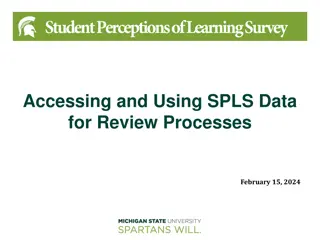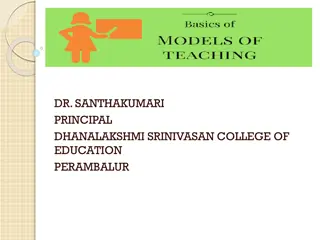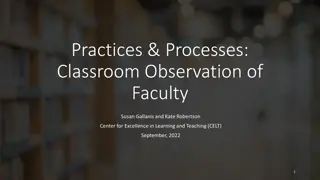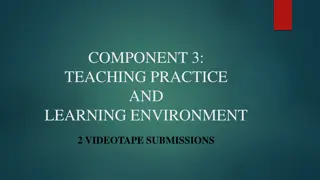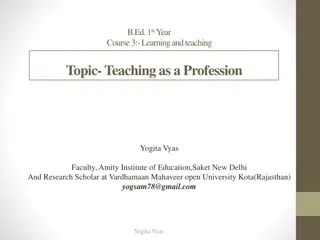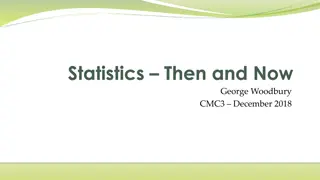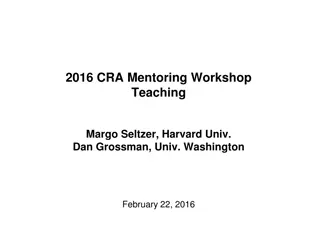
Evolution of the British Novel: From 18th Century to Modernism
Explore the journey of the British novel from its inception in the 18th century with Robinson Crusoe to its evolution through various literary movements like Victorian novel, modernism, and postmodernism. Discover how societal changes and technological advancements influenced the rise of the English novel, shaping Western understandings of human society and psychology.
Download Presentation

Please find below an Image/Link to download the presentation.
The content on the website is provided AS IS for your information and personal use only. It may not be sold, licensed, or shared on other websites without obtaining consent from the author. If you encounter any issues during the download, it is possible that the publisher has removed the file from their server.
You are allowed to download the files provided on this website for personal or commercial use, subject to the condition that they are used lawfully. All files are the property of their respective owners.
The content on the website is provided AS IS for your information and personal use only. It may not be sold, licensed, or shared on other websites without obtaining consent from the author.
E N D
Presentation Transcript
Lecturer: Aisha Khaled Omer Salahaddin University-Erbil College of Education / Shaqlawa English Department British Novel 2023-2024
The journey of British novel The evolution of the British novel began in the eighteenth century 1719 with the publication of the first real English novel Robinson Crusoe and continued till now, thus transitioning from century to another. Literature went from poetry to a new genre of prose writing which called Novel. It flourished in the eighteenth century to the nineteenth century( Victorian novel) to modernism to postmodernism from sentimentalism, romance, or fantasy to realism. Therefore, there was a transition from war to post war realism characteristics in literature, new approaches of the writers, new techniques and genres.
Novel as a literary genre enjoyed the highest level of glory in the 18th century. It is also an especially significant form, in that it has shaped Western understandings of human society and human psychology. The authors namely Defoe, Richardson, Fielding and Sterne contributed significantly to the development of English novel. They influenced the writers who came after them. The 18th century coincided with the industrial revolution which significantly contributed to the rise of the novel (with the invention of printing machine). The chain effects of industrial revolution improved people s life and living standard. The rise of the educated middle class people further increased the reading public which correspondingly led to demand of novels for reading.
In distinguishing the novel from other forms, we might note two of its most striking features. The first is the novel s preoccupation with social values and social distinctions. A great novel often seems to describe an entire society, creating a vivid image of the relationships among whole classes of people. The second is its interest in human psychology. Whereas plays and films are often forced to concentrate on externals how a character moves or speaks novels are free to probe the inner recesses of both mind and heart. By the end of a novel, we may have developed a deep sympathy and, perhaps, some kind of identification with the characters. In addition to examining human communities, then, the novel explores the nature of consciousness itself.
Factors Influenced the Rise of English Novel 1- Industrial revolution 2 -Decline of romance and drama 3-Rise of the middle class 4-Mobile libraries 5-The Rise of Individualism
The industrial revolution was a period from the 18thto 19th century where major changes in agriculture, manufacturing, mining, transport and technology had a profound effect on the socioeconomic and cultural condition starting in the United Kingdom, then spreading throughout Europe. Printing press was available for production of multiple copies at cheaper rate. Even low income people could afford to buy and read books; in the past only aristocrats were the reading public. Besides variety of reading materials such as newspapers, novels and magazines were made easily available due to printing press. The newspapers and magazines helped develop the habit of reading which ultimately led people to start reading novels.
Decline of romance Since romances were mainly suitable to be read by elite, aristocratic or noble families, it could not sustain the readership. The common people got bored with romances for they had no relevance of any sort to them. In addition, the stories themselves being centuries old were no longer of interest to the people. The settings in which the stories in the romances took place were also unrealistic. People started to take interest in the contemporary issues. Unlike romances, the novels were written in first person (making it appear more personal and recent ) with ordinary characters that the readers could relate with. The setting of a romance is usually remote and, perhaps, exotic, like that of a fairy tale. The characters in a romance are also sketched broadly handsome prince, beautiful princess and may include larger-than-life figures, such as giants and wizards. Finally, there s often some sort of magic in a romance.
Decline of Drama Decline of drama was also one factor that promoted the rise of the novel. In the 17th century, during the rule of Cromwell, theatres (which were so popular during the Elizabethan times) were banned and closed. Moreover, novel could reach vast audience when theatre could reach only to a limited audience. When drama came back with the restoration age, it could not establish its essence since novels got well established then. It was then natural that from the ashes of the drama (and, to some extent, of poetry, too) should rise the phoenix-like shape of a new literary genre. This new genre was, of course, the novel. The tendency has been, as it was in the Elizabethan drama, toward fullness of incident, plenty of background, numerousness and variety of characters, rather than toward concentration of interest and singleness of artistic purpose.
Rise of the middle class One outcome of industrial revolution was the rise of the middle class. The growth in industries brought about unprecedented corresponding growth with trade and commerce. People were increasingly becoming wealthy with even poor people of lower rank being able to raise their status. Further, with improved living standard many (both men and women) could acquire education and be able to read. Women readers increased with greater leisure time with the rise of middle class and it was a fashion for high status women to remain engaged in reading literature. The novelist wrote about common people revealing the psyche of the middle class in their novels. The novel thus appears to have been specially designed both to voice the aspirations of the middle and low classes and to meet their taste.
Mobile libraries The start of mobile libraries facilitated the increase of reading public. Reading was promoted by providing easy access to books with books being brought to the homes if people joined the mobile library as members. Women readers benefited a lot since they used to stay at home and exchange books after they finish reading one from the mobile library.
The Rise of Individualism The Rise of Individualism was also very significant in the emergence of the English novel. Ian Watt sees a typical of the novel that it includes individualization of characters and the detailed presentation of the environment. Defoe's "fiction" is the first, which presents us with a picture of both-individual life in its larger perspective as a historical process, and in its closer view, which shows the process being acted out against the background of the most ephemeral thoughts and action. It advocates the primacy of individual experience
The Oxford Advanced Learners Dictionary explains the word individualism as "the quality of being different from other people and doing things in one s own way; individual people in society should have the right to make his own decisions rather than be controlled by the community and tradition. Individualism is valued from the weight of the individual within his social milieu. Where in the West, among the Americans for example, individualism is seen as rooted in the view that human nature is sinful and needs to be changed, in other societies such as the Africans and Japanese it is believed that the individual is good by nature. An individual's identity is determined by the principles of the society, therefore s/he struggles to grow a self-identity.
The Purpose of the Novel The novelists also believe that their task is not only to inform but also to indicate morality. The main purpose of the old romance was entertainment and amusement; but this purpose changed when Richardson's first novel was given to the public. After this event, all of the great eighteenth century novelists, under the disguise of amusement, boldly and somewhat announce in their preface that their object is "to promote the cause of religion and virtue." they instruct the reader while showing vice and virtue in their true light. The Purpose of the Novel was mainly to promote virtuous character in people just as Richardson did. Some authors such as Swift and Smollett used satire and allegory to point out the vices in the society. The pioneer novelists contributed unique aspect of novel; Fielding popularized epic novels, Richardson with epistolary and sentimental novel, Defoe with realistic novel, Swift with satirical and philosophical novel and Sterne with experimental novel.
The theme of the eighteenth-century novel is the history of persons, regarded as moral beings, and treated in relation to each other and to society. The second and third quarters of the eighteenth century were years particularly watchful and critical in all matters affecting the religious, moral, social, and political conditions of the times. The intellectuals and reformers of the nineteenth century were well aware of the power of the page, understanding the innate ability of fiction to change the way people think and thus its power to help bring about social reform. The novel of purpose a novel that engaged with socially relevant issues within its narrative framework was particularly influential in the United States in the late eighteenth century and throughout the nineteenth century


